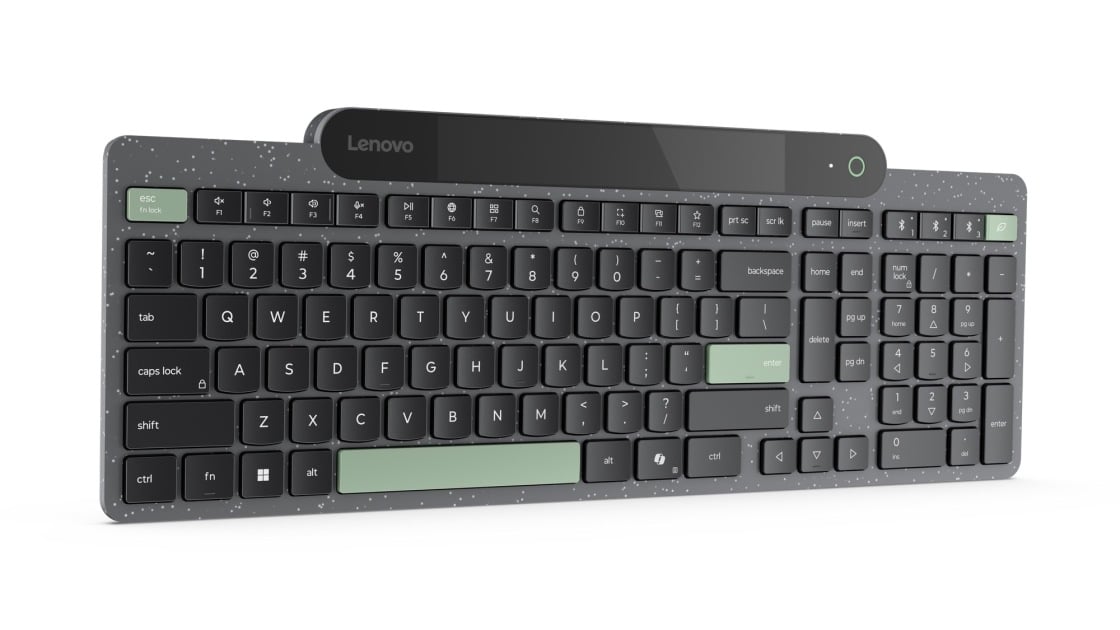Among the many laptops and desktops that Lenovo announced at CES 2025 is an intriguing peripheral: the Self-Charging Bluetooth Keyboard. This unique productivity keyboard ditches the traditional battery, instead utilizing solar and ambient light to charge and store energy.
The Lenovo Self-Charging Bluetooth Keyboard might seem like your run-of-the-mill keyboard, but it comes with a party trick that might just save you a buck in the long run. Using advanced photovoltaic technology and fast-charging supercapacitors, the keyboard actually harnesses ambient light to store energy, eliminating the need for disposable batteries.



I’ve got a battery-free efficient keyboard already… it uses this cable connected to the computer to supply power when keys are pressed. Very energy efficient. Never needs to charge. And unlike these keyboards with a built-in lithium battery, it will last indefinitely.
No lithium, it’s got a capacitor. Those things can handle a lot of charge cycles
But they still have a limited lifetime of a maximum of 10 years, regardless of cycle count.
I suppose you’ll have to do a 10$ repair on your decade old keyboard, and recycle the remains
Where are you getting that number? There are many different types of supercapacitors, which vary in lifespan quite a bit, the conditions (mostly voltage and temp) also have a big impact. The article doesn’t specify the type of cap used.
For instance this paper tests a supercapacitor rated for 2.7V at 2.5 and 3v. At 2.5v the cap is estimated to have a lifespan of 100yrs, with 3v scenario it’s 10.
Keyboards don’t get very hot, and the voltage draw is very predictable so I don’t think designing a long lasting capacitor for this usecase is particularly tricky.
I would be worried about the lifespan of the solar panel, but at least it’s still usable without that.
I think this looks great. I’m not going to run a 20 foot USB cable accross my living room so wireless is pretty much a must. I think the only concern I have is if it discharges if I store it and if so what the bringup time would be.
Good point; I’ve used a USB extender that had WiFi at either end to handle the distance thing. Maybe it’s just me, but outside of laptops I don’t generally have a need to move my keyboards around much.
The keyboard uses super capacitors which are much longer lasting than lithium batteries, it also has an USB C wired connection port hidden under a cap.